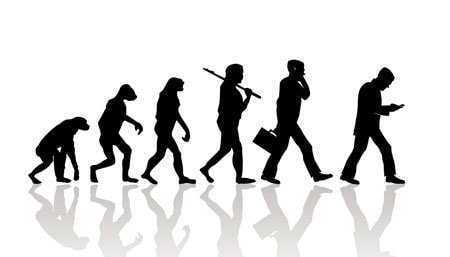In fact, one Fieldglass study on the future of work found that the average company’s workforce in 2015 was made up of merely 54% traditional, full time employees. In other words, almost half of an average organisation’s workforce consisted of employees working under non-traditional work arrangements. Of course that percentage is only set to grow in the future as the very nature of how companies are doing business continues to change.
This shift away from traditional work arrangements has significant implications for HR departments, and HR professionals should be well versed in how these changes impact the role of HR within your organisation. In this post, I will shed light on the different kinds of work arrangements becoming increasingly popular among companies, and more importantly look at how and why HR departments should be managing them.
First of all, what are the most common work arrangements?
Aside from traditional full time employment, there is a wide range of different work arrangements that HR professionals need to be prepared to deal with. These include, but are by no means limited to:
- Contractors/Outsourcing
- Remote Workers
- Freelance Workers
- Temp Staff
- Part Time workers
- Job Sharing
These varying work arrangements are changing the way in which HR professionals are operating in an organisation. In light of this, here are a few of the most important points to consider:
1. New roles, responsibilities, and job titles - take note.
With new work arrangements come new roles and job titles. As HR professionals are often responsible for hiring and on boarding, it is vitally important that any new or differing roles and responsibilities are fully understood and can be relayed with confidence to any prospective hires. Even HR itself has undergone a rebranding in many organisations, with some companies preferring to call the department ‘People Operations’ or even “Employee Experience.”
In addition, HR professionals can and should have a say in what kinds of work arrangements might be best for their organisation. Hiring contractors may be the best way to tackle a 6 month project, while taking on a freelance worker could be most suitable to fill a maternity leave role – whatever the situation, HR professionals are well placed to advise on work arrangement issues for the benefit of the company as a whole. This further reinforces the need to have HR professionals at a senior management level to help advise and offer suggestions on crucial structural management issues.
2. Developing your organisation’s culture just got harder.
With a vast array of work arrangements available to employees and employers, HR has a tougher job than ever to harness a strong, uniform company culture throughout an organisation. Tough as it is, a company culture that respects and recognises the differences in employee work arrangements across the board is vital to the smooth running of a business, and for attracting top talent. Integrating traditional and non-traditional work arrangements into one clear, strong and fair company culture is a central, albeit new, role of HR professionals nowadays – failure to do so may damage company reputation and decrease employee satisfaction.
3. Increase in trust needed – especially with remote workers.
While building trust among employees and HR professionals has always been at the forefront of HR responsibility, it is even more crucial when companies offer a mixed bag of work arrangements. For example, many companies, especially start-ups, benefit from hiring both freelance and remote workers. This arrangement calls for clear and precise delegation of tasks, a high level of communication between employee and employer (often facilitated by HR) and of course, huge amounts of trust in your employee that the work will be done, and done to a high standard. HR must focus on developing and building that trust, while also acting as an intermediary for employers and employees, wherever they may be working from.
4. Teamwork has never been more important
Finally, it goes without saying that teamwork is key when it comes to ensuring that all types of traditional and non-traditional work positions meld together effectively. Businesses may want to consider implementing cross-functional teams that can act as go-betweens for employees working under different arrangements. These cross functional teams may be included as part of the HR department or managed by HR professionals – as always, it’s about finding what works for your organisation.
The role of HR professionals is constantly changing – but one role that will never change is the need to keep on top of changes in industry and react accordingly, for the benefit of employers and employees alike.
For more helpful HR tips and advice, CLICK HERE to sign up to our newsletter.


 RSS Feed
RSS Feed